- Home
- Alex Berenson
The Ghost Agent Page 10
The Ghost Agent Read online
Page 10
It had started with Dick Abrams, the old Hong Kong station chief. That snotty Yalie, with his fake half-British accent. ‘We think you belong back at Langley,’ Abrams had said. ‘You’re too cerebral to be in operations. Take it as a compliment.’
Too cerebral. The words were almost twenty years old, but the mole heard them so clearly that he half-expected to see Abrams beside him tonight instead of Janice. He flushed at the memory. They’d been in Abrams’s immaculate office, sitting on the couch that Abrams used for his quote-unquote informal chats. No matter where the mole looked, he couldn’t avoid the photograph of Abrams and Bill Casey, the old director, a legend in the Directorate of Operations. Abrams hadn’t bothered with a picture of William Webster, Casey’s replacement – his way of letting visitors know that he would be around long after Webster was gone.
The mole sneaked a peek at his watch: 3:15. He was suddenly thirsty. Knowing that this meeting was coming, he had skipped his usual lunchtime scotch-and-soda. Now he wished he’d had a double instead.
‘Is this about the incident?’ the mole said.
‘The incident?’ Abrams had said, icy and smooth. The mole focused on meeting Abrams’s eyes. As a kid, he’d found eye contact difficult. Over and over, his mother had told him, ‘Look me in the eye. Don’t be weak.’ Her words only made the task harder. But he knew she was right. He practiced, staring at teachers, his friends, even strangers at bars. He pretended they weren’t real, that he was watching television. Now he could look the devil himself in the eye. He raised his head and stared at Abrams.
‘The incident?’ Abrams said. ‘You mean when you got drunk and propositioned the Italian ambassador’s wife?’
‘His daughter, you mean.’ Even as the mole blurted out the words, he realized that Abrams had intentionally misspoken to trap him.
‘Right,’ Abrams said, drawing out the word. ‘His daughter. She was sixteen, right?’ She didn’t look sixteen, the mole thought. Not in that dress. And maybe I’d had a few too many Dewar’s, but so what? The CIA, especially the Directorate of Operations, was filled with hard drinkers. In stations like Rome or Hong Kong, where not a lot was happening, getting sloshed at lunch was practically a necessity.
But trying to justify what had happened would only make matters worse, the mole knew. Abrams didn’t care. He was enjoying himself, enjoying the chance to make sure the mole knew what a flop he’d been. The mole wished he could lean over and lock his fingers around Abrams’s neck.
‘Anyway, we think you’d be better off back at Langley,’ Abrams said in that maddening voice of his. ‘Not in a front-line operational role.’
So back he’d gone to Langley, where he could never outrun what had happened in Hong Kong. Other officers padded their expense accounts, stole petty cash, screwed secretaries. But the comic value of what he’d done ensured it would never be forgotten. He’d become a walking punch line, an object lesson for a generation of case officers. Whatever you do, don’t put the moves on the ambassador’s daughter. He’d made matters worse by refusing to bend to drones like Joe Gleeson. He’d never learned how to kiss the right asses. How to play golf. Silly him. He’d figured that intelligence counted for something at the Central Intelligence Agency.
The mole felt his mood changing again. So what? Forget golf. Without wasting a single Sunday chasing a little white ball around, he’d beaten them all. Today alone, he’d made $75,000. That was a year’s pay, after taxes, for Joe Gleeson. For him it was walking-around money.
Suddenly he knew how he would spend his bonus. The Corvette. He smiled in the dark. A ’67 Sting Ray convertible, silver. The eBay listing said the car was in Tampa. He could pick it up there, drive it to Miami, garage it with his M5, another beautiful piece of steel. Too bad nobody at Langley would ever see it. The mole could imagine jaws dropping as he cruised through the parking lot with the top down.
Of course he wouldn’t keep the ’Vette in his name. Ditto the M5, or the condo in Miami he’d bought a few years back. A Florida company, London Two, owned everything. In turn, London Two’s shares were held by a shell company based in the Caymans.
From there the trail went to Rycol Ltd, a shell corporation in Singapore that got $25,000 every month from the Fung Long Jack Co. Fung Long was a real business, a shipping company owned by a Chinese businessman in Singapore. If anyone asked, and no one ever would, the monthly payments were commissions that Fung Long paid Rycol for buying fuel for its fleet. Even Fung Long’s owner didn’t know what the money was really for. He just knew that his cousin, a senior Chinese general, had asked him to make the payments, and that $25,000 a month was a small price to keep his cousin happy.
Originally, the mole’s handlers had paid him the old-fashioned way, leaving cash at dead drops. But the mole quickly learned that using cash for big transactions was risky. Strange but true: banks hated handling cash. Especially after September 11, they strictly enforced the rules requiring them to report deposits of more than $10,000 to the Treasury Department. So he’d set up this system, which so far had been foolproof.
The mole had decided even before he approached the Chinese that he wouldn’t spy unless he could enjoy his money, and that meant finding ways to use it legally. He had no interest in stashing a million bucks in his basement. Of course, the paper trail would provide ironclad confirmation of his spying if he was ever caught.
But he didn’t expect to get caught. The agency had a dismal record of finding double agents. Both Ames and Robert Hanssen, an FBI agent who became a mole in the mid-1980s, worked with impunity until their Soviet handlers betrayed them – and Ames and Hanssen had been far less cautious than he was.
Over the years, the mole had realized that stealing secrets was easier than it looked. Case officers in China, and everywhere else, sent in torrents of reports to justify their existence. They filed everything: contacts with Communist officials, requests for authorization to approach potential agents, gossip about new programs the government was considering. The briefings piled up on his desk. The mole read them all,
one reason his superiors valued him, despite his occasional outbursts of temper. His biggest problem was deciding which documents were important enough to steal. For the mole had realized something else since he’d switched sides: The most vital information was the simplest – the names of the agency’s operatives in China and Taiwan, and the spies they’d recruited. If actual names were unavailable, specific information about where the agents worked. The locations of drop points. The objectives of active operations. The agency’s assessment of China’s military capabilities.
No, the hardest part of being a double agent wasn’t the actual spying. It was resisting the temptation to brag. Destroying the letters George sent him instead of saving them. Never encouraging Janice to wonder why he spent so much time in the basement.
All these years, he’d kept his mouth shut. It wasn’t always easy, especially at the Gold Club after he’d had too many scotches. He comforted himself with the knowledge that the strippers wouldn’t believe him anyway. The scene was only too easy to imagine: ‘Want another dance?’ Candy, or whoever was working him that night, would ask, after slipping his twenty dollars into her garter. She’d go through the motions of dancing, not even pretending to be interested, as some horrendously predictable song ticked away: Don’t you wish your girlfriend was a freak like me? Don’tcha, don’tcha?
‘Hey, Candy, ever wonder where I work?’
‘Not really.’ Pause, as she figured out he wanted her to ask. ‘Where?’
‘Over at Langley.’
A genuinely puzzled look from Candy. ‘Langley? That a hospital?’
He’d be flattered. ‘Do I look like a doctor?’
‘Not exactly, no.’ By now she would have used the conversation as an excuse to stop dancing.
‘Langley. You know, the CIA.’
‘You work for the CIA. Kidding, right?’ She’d be leaning in, looking at his eyes, drunk herself, unable to see him as anything more tha
n a middle-aged groper.
‘Uh-uh. Dead serious.’
‘Serious, huh?’ A big stripper smile, then a finger pointed at him in imitation of a pistol. She’d put her hand on his leg. ‘Well, let’s see your gun, big boy.’
‘Wanna know something else? I’m a double agent.’
‘You go both ways? I thought you might. That’s cool. I got a couple friends –’
‘No!’
‘Sorry, baby. Didn’t mean to hurt your feelings.’
‘I mean, not like that. I spy for the Chinese government. Treason.’
‘Treason? What’s that?’
And the song would end.
Ugh. Forget it. One day, after he’d retired and Janice had died of cirrhosis and he was living someplace with no extradition treaty, he’d write his memoirs and name every name he could remember. Until then, he would keep his mouth shut. He closed his eyes and imagined Corvettes, a flotilla of shiny convertibles, until sleep took him.
ELEVEN
THE BLACK HAWK’S rotors began to spin, first slowly, then faster and faster. At rest, the twenty-six-foot blades drooped under their own bulk. But they stiffened as they accelerated. In seconds they disappeared into a relentless blur. Wells felt himself instinctively pull his head back, though he stood fifty feet from the helicopter. Those rotors could liquefy a skull.
Wells checked his watch. 1655. Five minutes to takeoff. Then the rotors slowed. Inside the cockpit, the pilots hunched over the Black Hawk’s instrument panel.
The blades dribbled to a stop, and the helicopter’s crew chief hopped onto the tarmac. With his green flight helmet and black goggles, he looked like the love child of a palmetto bug and a Green Bay Packers punter. ‘Warning light on the hydraulics,’ he yelled. ‘Take a few minutes to check.’ He scrambled back inside the cabin.
Any delay was bad news, Wells thought. They needed to be in the air soon to hit the campsite at dusk. Sweat prickled his chest, though he wore only a faded green T-shirt under his bulletproof vest. He reached for a bottle of water from the cooler at his feet and sucked it down in one long gulp.
Around him, men in Kevlar vests squatted over topo maps and double-checked their radios. A and B Companies of the 3rd Battalion. Twenty Special Forces soldiers in all. Two squads of the best-trained fighting men anywhere, about to head into the Hindu Kush.
Wells unholstered his pistol, checking that its slide was smooth and its magazine full. As he finished, he noticed Greg Hackett staring at the 9-millimeter Makarov. Hackett was the youngest member of B Company, a short man whose head seemed to rise directly out of his massive shoulders. He had a heavy brow and a thick nose, the face of a half-finished marble bust that a sculptor had decided not to finish.
‘Mr. Wells, sir. Permission to ask a question.’
‘If you promise to stop calling me sir, Hackett.’
‘Yes, sir – I mean John.’ Hackett looked at the pistol. ‘Is that the one you used?’ Wells didn’t know what Hackett meant, and then he did. ‘On Khadri, you mean.’
Hackett nodded. He couldn’t keep his eyes off the weapon.
‘Since you ask. Yeah.’ Wells handed the Makarov to Hackett. The sergeant cradled the pistol like a newborn.
‘No need to fetishize it, Sergeant. It’s just a gun.’
Hackett handed the pistol back. ‘Can I ask one more question, sir? How does it feel to be back here?’
‘Sergeant, don’t you have something to do?’
Wells had come to Afghanistan years before September 11, when most Americans had never heard of Osama bin Laden. He’d fought alongside Qaeda and Taliban guerrillas for almost a decade. He had even become a Muslim during those years. Eventually, the guerrillas had accepted him as a believer.
But Wells was happy to hunt his former allies today. He didn’t count himself as Muslim anymore. He couldn’t honestly say whether he believed in God after everything he’d seen. And even during the years when he had accepted Islam as the one true faith and prostrated himself to Allah five times daily, he had hated bin Laden’s nihilistic vision of the religion. The Taliban and Qaeda gloried in encouraging teenagers to become suicide bombers. They were unworthy of Islam.
And they were unworthy of Afghanistan. Afghans were tribal to a fault, splintered into narrow sects whose hatreds dated back centuries. The Taliban had taken advantage of Afghanistan’s internal fractures to impose a vicious dictatorship in the 1990s. Seemingly out of spite, they had undone what little progress Afghanistan had made during the twentieth century, destroying the country’s hospitals and schools. During the American invasion after September 11, the planners at the Pentagon joked that the United States would bomb Afghanistan up to the Stone Age.
The American attack had forced the Talibs out of power. Now Afghanistan was stumbling toward modernity and democracy. But the Taliban hadn’t gone away. The guerrillas were trying to turn tribal leaders against the United States and its allies. They had a real chance of succeeding, because in any crisis Afghans turned inward. Wells understood why they depended on themselves. For hundreds of years, outsiders had come and gone, most often leaving the country in worse shape than they found it in. But –
A hand on his shoulder interrupted his thoughts.
‘Goggles!’ Captain Steve Hughley, the commander of B Company, yelled.
Wells had been so busy figuring out Afghanistan’s future that he’d missed the Black Hawk starting up again. He tucked in his earplugs and pulled down his goggles as the helicopter’s rotors reached full speed, kicking up dust and pebbles from the tarmac.
‘Ready?’ Hughley yelled.
‘Yeah!’ Wells screamed back. His enthusiasm was real. He hadn’t flown in a Black Hawk since his days as a Ranger in the mid-nineties. He’d forgotten how magnificent these helicopters were up close. And how loud. Even with his earplugs in, he was nearly overwhelmed by the screech of the Black Hawk’s 1,800-horsepower turbines.
The ten-ton helicopter bounced slightly off the runway in its eagerness to take flight. The crew chief waved B Company forward. Down the tarmac, A Company was boarding its own bird. Wells pulled a windbreaker over his vest and grabbed his pack. Inside the cabin, he settled into his seat – designed to collapse to the floor of the cabin if the Black Hawk crashed – and clicked on his harness.
‘Comfy?’ The crew chief tugged the six-point harness tight and offered Wells headphones. Wells took them gratefully. Insulation was wasted weight for combat helicopters, so the Black Hawk wasn’t soundproofed. Inside the cabin, the roar of the turbines was overwhelming, a scrum of white noise that made conversation or even thinking nearly impossible.
The crew chief hooked in. When he and the gunner on the other side were set, the helicopter’s frame began to rattle as the turbines spun at peak power for takeoff. The Black Hawk burned three gallons of fuel a minute, so pilots didn’t waste time once the crew strapped in.
The copilot pulled back the Black Hawk’s yoke and the helicopter rose effortlessly off the tarmac. Wells knew that the Black Hawk had the aerodynamics of a brick and would plummet if its engines failed. Yet the copter seemed to belong in the air. As soon as it took off, its frame stopped shaking and the scream of the turbines lessened. It banked right and kept climbing, leaving Bagram’s stubby huts behind.
Wells looked around the Black Hawk’s cabin at B Company, an impressive group, even by Special Forces standards. Three of the soldiers spoke Pashto, a fourth Dari. Their sniper team had finished third in the Army’s shooting competition two years back. Hughley, the company captain, was one of the few black commanders in the Special Forces. He was six-three, with arms that seemed to be carved from oak. At West Point, he’d played defensive tackle. And somewhere along the way, he had picked up fluent Arabic. A few Saudis still lingered in the mountains, fighting alongside the Taliban, and at dinner the night before, Brett Gaffan, the company radioman and unofficial comedian, had told Wells how one Saudi they’d captured had refused to believe that Hughley spoke his language:
&nbs
p; ‘So Abdullah – he’s sitting on the ground, see – he’s peeking over his shoulder, looking all scared. Captain’s like, “Calm down, dude. You’re not getting whacked.” How do you say “whack” in Arabic, Cap?’
‘You don’t.’ Hughley’s tone was deadpan.
‘How ’bout “dude”? They gotta have a word for “dude,” right?’
‘You believe the crap I have to listen to every day?’ Hughley said to Wells.
‘Anyway, this camel jockey, ’scuse my French, starts looking around harder than Jeff Gordon on turn four, trying to see who’s really talking to him.’ Here, Gaffan craned his neck from side to side, imitating the Saudi, before jamming a forkful of mashed potatoes into his mouth. ‘So Cap gives him some more mumbo-jumbo.’
‘Finish your dinner, Gaffan.’ Hughley turned to Wells. ‘I told him it was no trick, I was the one talking.’
Gaffan dribbed a glass of lemonade into his mouth and swallowed mightily. ‘Then Abdullah says something back, and Cap nods at him and tells us to stand him up. Then it gets weird, ’cause Abdullah gets real close to the captain, like he’s getting ready to give him a kiss.’
‘He wasn’t that close.’
‘All due respect, sir, he was. Wasn’t he?’
Nods around the table.
‘And we’re all confused, wondering if we’re gonna be whacking Abdullah after all. And you know we try not to kill our captures, even though damn sure the other side ain’t showing us the same courtesy.’
More nods.
‘But then we’re thinking, maybe Cap wants a kiss. Since he hasn’t seen his wife in six months, and the dude was kinda cute.’
‘Now you’re scaring me,’ Hughley said.
‘Nah, he was cute. Wasn’t he?’ Gaffan looked around the silent table. ‘I know y’all thought so too, so don’t deny it . . . anybody?’ Pause. ‘Okay, then. Let’s make like I never said that.’
‘Too late,’ said Danny Gonzalez, the company’s medic.
‘Moving on. Then Cap starts singing –’

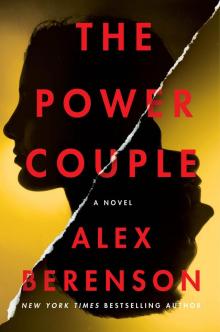 The Power Couple
The Power Couple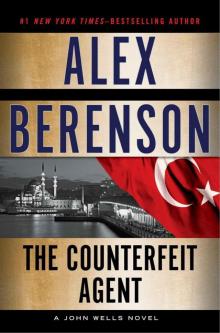 The Counterfeit Agent
The Counterfeit Agent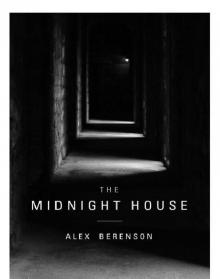 The Midnight House
The Midnight House The Prisoner
The Prisoner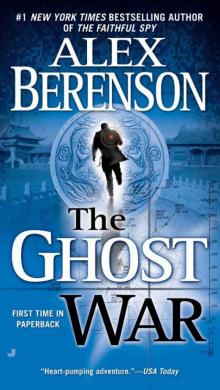 The Ghost War
The Ghost War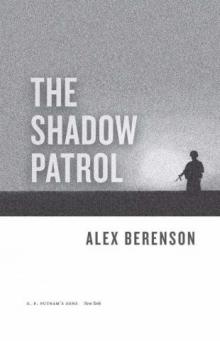 The Shadow Patrol jw-6
The Shadow Patrol jw-6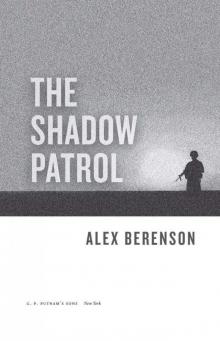 The Shadow Patrol
The Shadow Patrol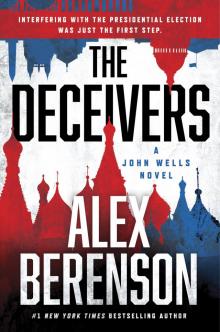 The Deceivers
The Deceivers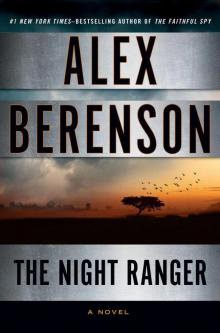 The Night Ranger jw-7
The Night Ranger jw-7 The Faithful Spy
The Faithful Spy The Prince of Beers (Kindle Single)
The Prince of Beers (Kindle Single)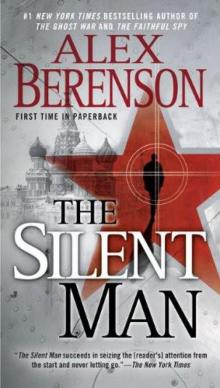 The Silent Man jw-3
The Silent Man jw-3 The Silent Man
The Silent Man The Wolves
The Wolves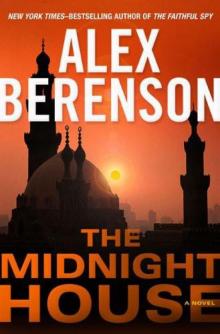 The Midnight House jw-4
The Midnight House jw-4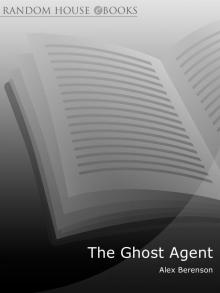 The Ghost Agent
The Ghost Agent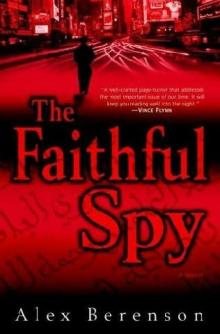 The Faithful Spy jw-1
The Faithful Spy jw-1 The Prince of Beers
The Prince of Beers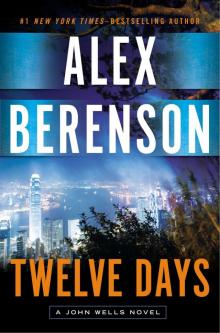 Twelve Days
Twelve Days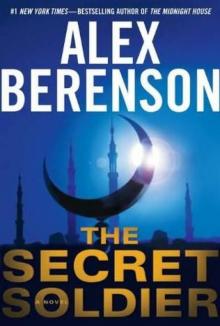 The Secret Soldier jw-5
The Secret Soldier jw-5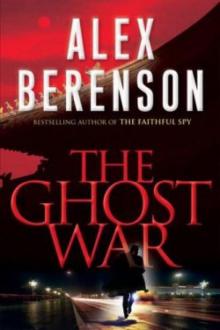 The Ghost War jw-2
The Ghost War jw-2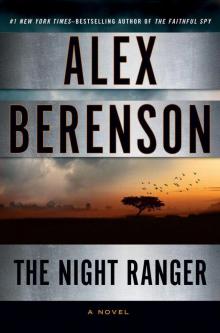 The Night Ranger
The Night Ranger